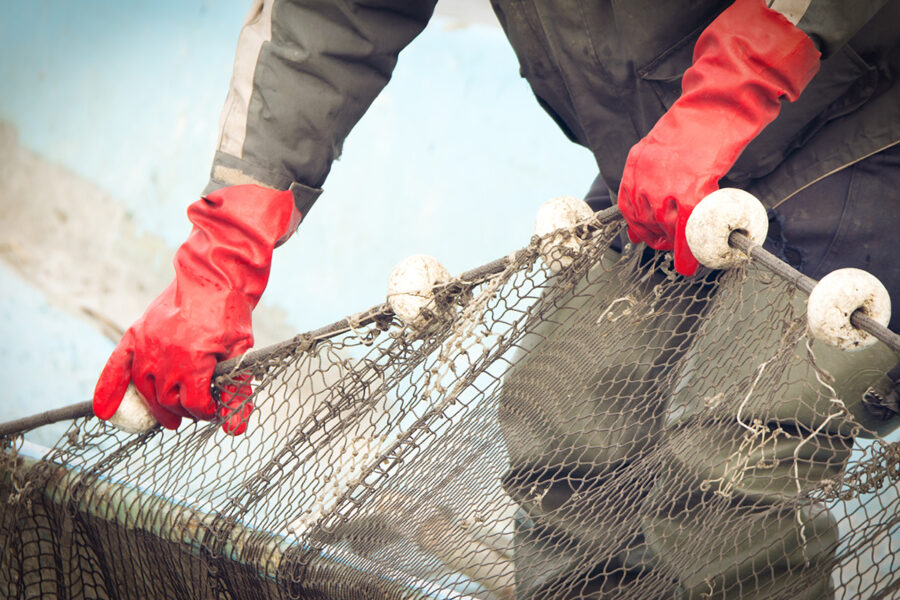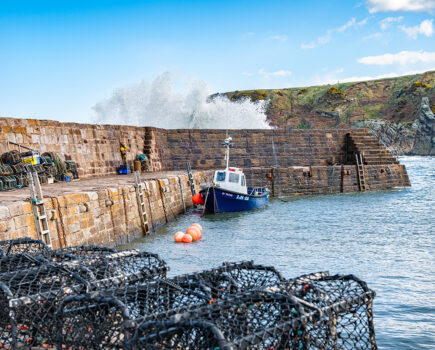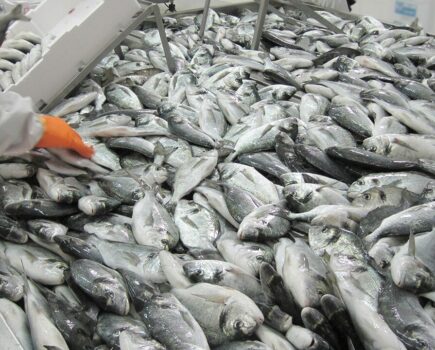A press release jointly issued by the MCA and the Department for Transport last week took the industry by surprise, opening, as it did, a consultation on whether the ML5 requirements introduced across the entire fishing industry on 1 December should now no longer be required for those working on under-10m vessels.
This strange twist of events was, said secretary of state for transport Mark Harper, the result of the government ‘listening to the concerns of those in the fishing industry as well as MPs representing coastal communities’.
“The safety of those who are working in our fishing industry is paramount, and it’s vital that any medical requirements work for them,” he said. “That’s why we have actively listened to views from the fishing industry and MPs representing coastal communities, already granting concessions for factors such as eyesight, diabetes and BMI.
“This consultation shows that we are open to proper solutions that uphold the highest standards of safety.”
No mention was made of the increasingly frantic efforts by many inshore fishermen to retake safety certificates, and in many cases to pay for multiple medical checks and certifications, ahead of the 1 December deadline.
The consultation, which is open until 27 February, suggests that an exemption from the ML5 could be provided for fishermen able to demonstrate at least four weeks’ work on an under-10m vessel between 30 November, 2022 and 29 November, 2023.
This, the Department for Transport and MCA say, would be ‘proportionate’, adding: “The majority of [under-10m] vessels predominantly work close to shore for less than 72 hours and are therefore closer to medical assistance and evacuation – meaning that any medical issues arising can be more easily addressed.”
The announcement of the consultation, although universally welcomed, was met with incredulity by many MPs who had campaigned on the matter, as well as those within the industry.
NFFO chief executive Mike Cohen said the announcement had set the phones ringing immediately, with many members asking for advice about situations where they were awaiting certification and were unsure whether they were allowed to go to sea in the interim.
“For months, the NFFO has campaigned for the medical certification regulations to be changed,” he said. “Until now, the Department for Transport has insisted that this would not happen. Our persistence has paid off, though, and they are now considering a change to one of the most damaging aspects of those rules.
“There is still a lot to be clarified, however. If the Department for Transport changes its mind now and brings in this sensible exemption for the under-10m fleet, will they reimburse all those who paid out, sometimes hundreds of pounds, to demonstrate their fitness to get a certificate that they no longer need a few weeks later? What about the other issues with the standards chosen, and the inconsistency with other industries (it’s still harder to get a medical certificate to work on a fishing boat than to drive a bus)?
“Why segregate the fleet on the basis of size, rather than working practices, when that seems inconsistent with the rationale of international regulations that are supposedly being adopted here?
“Anyone who admits that they have got something wrong and tries to put it right should be applauded, and this consultation and the change it could bring about are very welcome news. Surely, though, the issues that it highlights demonstrate that it is time to pause the operation of the regulations altogether, and order a full and independent expert review.”
Sarah Ready of NUTFA, which has also been receiving calls from inshore fishermen asking for advice, said that many were confused about the current situation.
“The way the communication has been presented by the MCA is far from clear, as usual, which is adding to the stress for fishermen. Some callers have time-limited exemptions that may require renewal before the results of this consultation are confirmed – what they are meant to do in the interim period is not clear. There doesn’t seem to be anyone with any experience and knowledge of policy drafting on the wording, which is not helping.
“Many fishermen have their boats up for sale, as they have been told time and again that they would need a medical. Some have already given up.
“The individuals in charge of this fiasco need to be held to account. They are in public office and accountable for the carnage that is now unfolding.”
Her NUTFA colleague Jerry Percy, who said it was ‘vital’ that all fishermen respond to the consultation, added: “Whilst NUTFA does of course welcome the consultation, we are literally dumbstruck that it has taken the MCA so long to arrive at a point that they should have reached five years ago.
“As FN readers know, NUTFA has begged and pleaded with the MCA and government to reconsider the draconian approach to ILO 188 that has resulted in massive worry and concern for fishermen, some being literally forced into the water to prove their fitness, others being driven to selling up or tying up in the face of threats of enforcement from an over- zealous and chaotic MCA.”
The many MPs who had asked Department for Transport and the MCA to bring common sense to bear over the ML5 welcomed the consultation, but also questioned how the situation had progressed in such a haphazard manner.
Daniel Zeichner, the Labour spokesperson for fisheries, said: “The consultation is welcome, although it has been a long wait to get some movement, and many have suffered considerable stress and anguish already.
“Why did fishers have to go through this to get the government to consult, when the problem has been obvious for months? I suggested an exemption for under-10m vessels to the secretary of state in the House of Commons a few weeks ago – I’m glad we now have some progress.”
Alistair Carmichael, the MP for Orkney and Shetland, who has also been vocal on the need for sensible interpretation of international safety requirements for inshore fishermen, said: “The one-size-fits-all medical certificate requirement never made much sense, but it created grief and stress for fishermen
the length and breadth of the country.
“The way that Conservative ministers and the MCA have handled the medical certificate issue stands out as one of the most cackhanded fisheries decisions I have seen in my time in politics – because it was entirely unnecessary to act in the way they did. Even so, a late change is better than nothing.
“I would urge fishermen in the isles to make their views heard in the consultation, so that we get the strongest possible voice from the industry. It has taken too long for ministers to open their ears – now is the time to shout into the megaphone.”
The consultation runs until 27 February. The consultation document, and a short and simple consultation form, which consists of just two questions, and space for additional comment below, can be downloaded here.
By Andy Read, Editor, Fishing News
This story was taken from the latest issue of Fishing News. For more up-to-date and in-depth reports on the UK and Irish commercial fishing sector, subscribe to Fishing News here or buy the latest single issue for just £3.30 here.
Sign up to Fishing News’ FREE e-newsletter here.








